How horses help humans heal – and thrive
How horses help humans heal – and thrive
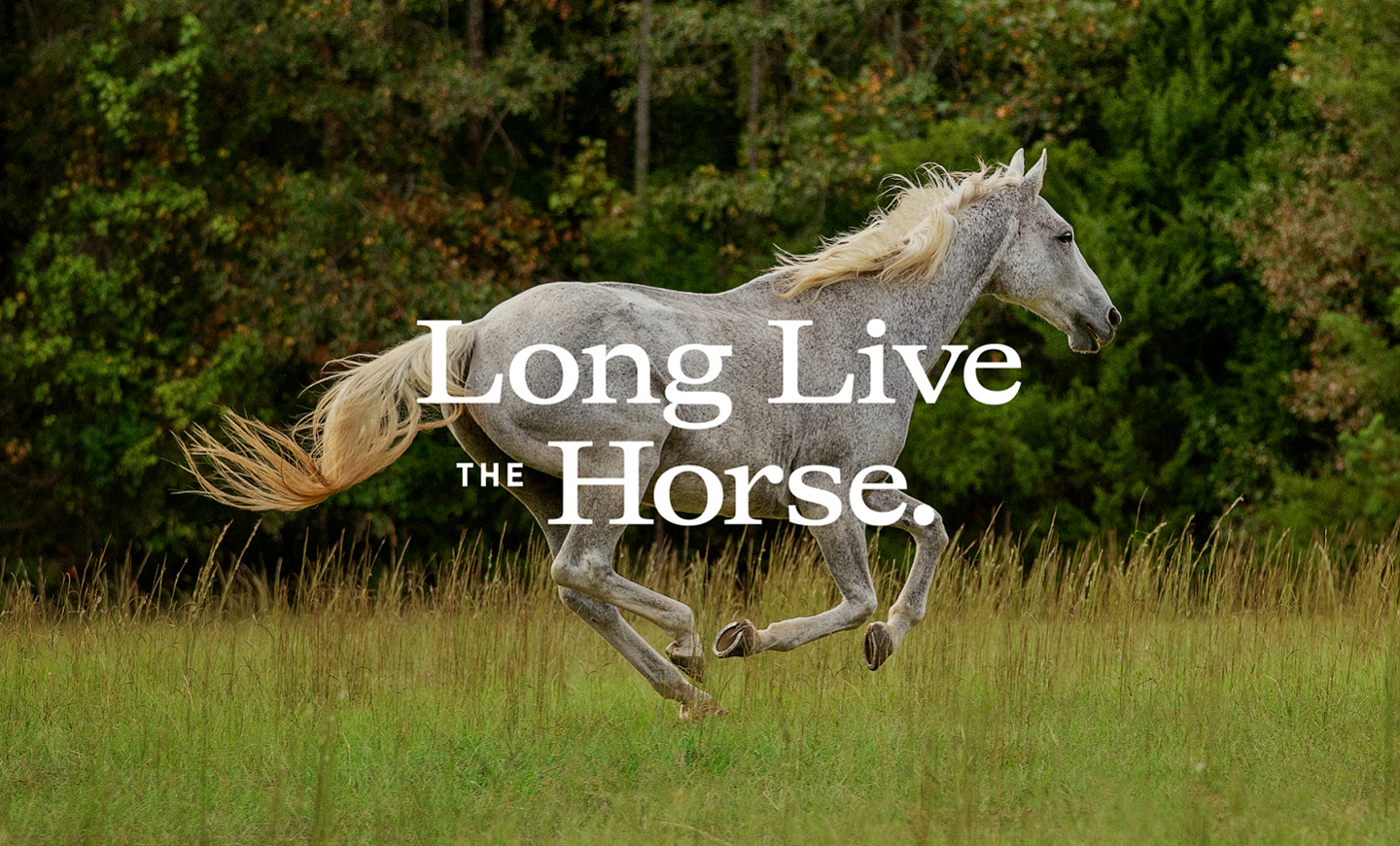


A growing body of evidence suggests that the unique human-horse connection improves the physical and mental health of both species.
Bronco is a 29-year-old horse who works in equine-assisted services (EAS) in North Dakota, helping people overcome physical, cognitive and emotional challenges. He is known for his gentle spirit and remarkable intuition. So when, one day, in the middle of a therapy session, Bronco froze and purposefully refused to move, the therapist conducting the session was perplexed. Seconds later, the client Bronco was carrying had a seizure.
Recounting the incident, Kathy Alm, CEO of the Professional Association of Therapeutic Horsemanship International (PATH Intl.), explained that because this wasn’t an isolated incident of this type in the industry, Bronco might have intuited something was wrong, and stopped to keep the client safe. The heroic horse was later named the PATH Intl. 2021 Equine of the year.
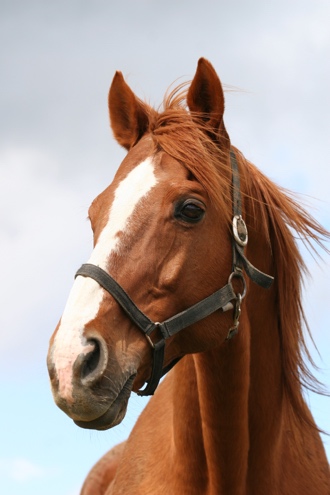
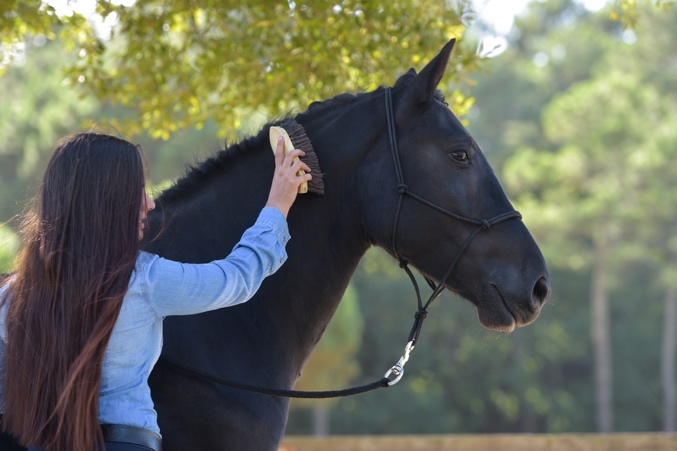
The fates of horses and humans have been woven together for millennia. Horses have transported us and helped us cultivate food; they’ve been with us in battle, and they’ve carried us in sport. We, in turn, have largely evolved to reciprocate, providing horses with care and companionship. But as moments like the one between Bronco and his rider on that day suggest, the bond between the two species may run much deeper than that.
In fact, an emerging body of scientific evidence indicates that interacting with horses improves health and well-being and can help people with numerous physical and mental health conditions, from children living with motor disabilities to adults grappling with post-traumatic stress disorder (PTSD).
And, as researchers are only now beginning to scratch the surface of the many ways in which partnering with horses can impact human well-being, many believe it is more important than ever to return the favor and find new ways to help horses live longer and happier lives.
“The horse is an amazing animal, and there’s so much research now that is advancing our understanding of how horse-human interactions impact health,” said Dr. Pebbles Turbeville, executive director of the nonprofit Horses & Humans Research Foundation, which invests in studies that explore how horse-human interactions benefit both species. The foundation has funded $655,000 across 14 high quality research studies on cerebral palsy in physical an occupational therapy, autism and military veterans. At the same time, industry leaders like Zoetis, the world’s largest company solely dedicated to animal health, are making major advances in equine medicine and standards of care to help horses live healthier, more fulfilling lives—an investment that, it seems, could ultimately benefit us all.

Physical Therapy: Horses Helping Humans
Today, there are nearly 8,000 horses globally who are working at PATH Intl. centers, and each of them helps humans with an array of challenges. The most common diagnosis seen in these therapies, as in therapeutic horsemanship as well as physical, occupational and speech therapy.
One area generating a lot of excitement right now is physical or occupational therapy wherein therapists incorporate horses into their treatment plans. This shows particular promise for clients with disabilities such as cerebral palsy, the most common motor disability in childhood. Physical therapy that taps into a horse’s natural movements, like its gait and its rhythms, encourages core strength, postural symmetry, improved motor skills and more.
EAS have also been found to help children with developmental delays improve their social and emotional skills, potentially because of the crucial roles that empathy and trust play in the unique relationship between participant and horse.
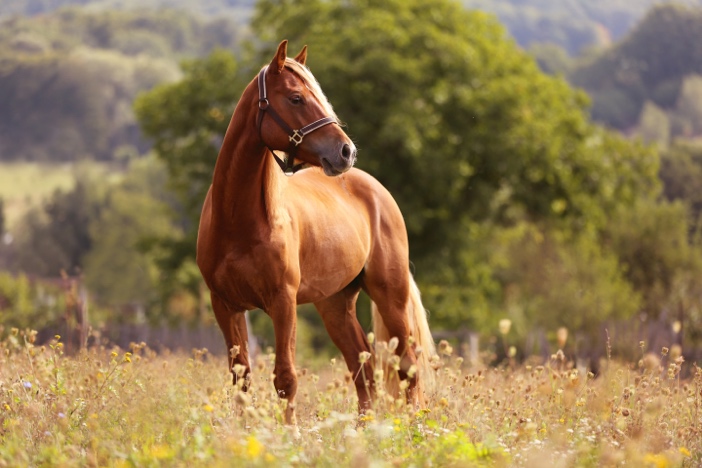
In addition to studies, therapeutic riding instructors and professional therapists share compelling anecdotal evidence. According to Dr. Turbeville, who is a certified therapeutic riding instructor: “I’ve had riders who needed to use their walker to get to the horse. But when they got off the horse after a session, they were able to walk back to their walker on their own.”
Alm shared a personal memory of an 8-year-old boy who had never spoken. After an initial 20-minute assessment on the horse, he put his hand in his mother’s and said: “Me ride horsey.” It was, according to his parent, the first sentence he’d ever said.
Emerging research also points to how partnering with horses can help improve mental health conditions, particularly military veterans suffering from PTSD. One study found that after just an eight-week treatment program incorporating equines, veterans’ symptoms decreased significantly, and remained that way for months.
To better understand why equine-assisted psychotherapy is effective, and to understand its impact on horses, researchers have analyzed horses’ cortisol levels (the primary stress hormone) and found they tend to increase when they interact with veterans with PTSD. This may be a physical indication that horses can recognize and mirror the emotions of humans.
“We’ve heard from so many veterans who say they couldn’t get out of bed, they didn’t leave the house,” Alm said. “When they find their way to a therapeutic riding program or a psychotherapist who incorporates horses into their treatment plan, they start to bond with their horse and tell them things they aren’t ready to tell anyone else.”
Alm added that many horses appear to enjoy the “mental workout” and take pride in caring for their riders and participants. For a uniquely intuitive and intelligent animal, she added, EAS can represent a fulfilling career.
Humans Helping Horses
Alm’s observations are increasingly backed by science. Horses can quickly read human emotions; one study showed they use their left ear when focusing on photographs of angry-looking people, lighting up the hemisphere of the brain associated with assessing risk. Studies have also measured how horses’ heart rates change when they’re in the presence of people they know and trust.
Research suggests, then, that while horses are doing much to improve human wellness, horses also enjoy spending time with humans.
And, just as interacting with horses can improve physical and mental health in people, humans are reciprocating with more than just that unique emotional bond. The potential importance of the horse to public health has perhaps stirred more interest in overall equine health than ever before.
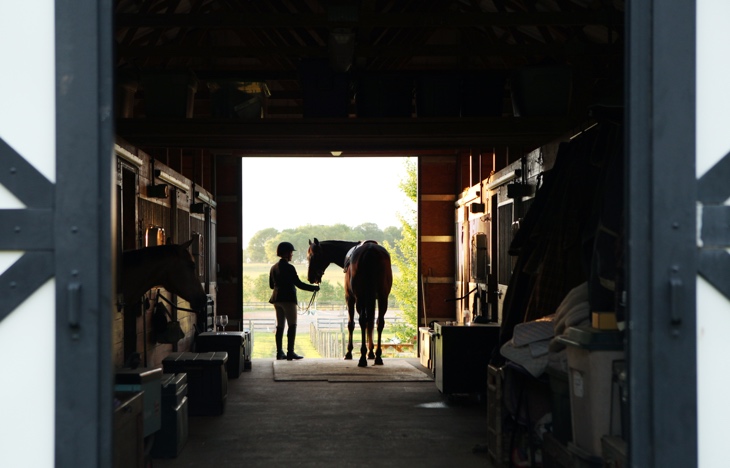
Horses are unquestionably better off today thanks to major scientific advances: everything from new vaccines that protect against serious illness, to breakthroughs in nutritional science that help horses thrive. The world’s largest company dedicated solely to animal health, Zoetis, is leading the charge by developing cutting-edge vaccines, medications and horse care products that both veterinarians and horse owners know and trust.
Take Take Pro-Stride® APS, a regenerative medicine device that allows a veterinarian to take some of a horse’s blood stall-side, separate and concentrate it into a solution of cells, platelets, healing growth factors and anti-inflammatory proteins, and inject it back into the horse within 20 minutes. This helps restore the healthy environment of the joint from debilitating pain and inflammation that often results in lameness.
But Zoetis is not just working on new research and game-changing interventions. The company is equally committed to providing free, public access to the most up-to-date information about equine care.
“At Zoetis, one of our mantras is: always by the side of horses and their humans. Because we really focus on the continuum of care,” said Dr. Mark Crisman, senior veterinarian in Equine Technical Services for Zoetis U.S. and a board member on the Horses & Humans Research Foundation.
Focusing on that “continuum of care,” Dr. Crisman said, means not only detecting and treating life-threatening issues, but helping to prevent them. Every horse faces exposure to the core equine diseases (West Nile virus, rabies, tetanus, and Eastern and Western Equine Encephalomyelitis) because of exposure to wildlife and mosquitos. CORE EQ INNOVATOR® is the first and only equine vaccine to contain all the necessary antigens to protect horses against those potentially fatal diseases in one injection.
With this much innovation in equine health happening every day, the company offers on-demand courses and live webinars for veterinarians, as well as accessible horse care tips for owners.
Because as researchers, veterinarians and horse owners know, the better we humans understand and care for horses, the more we stand to discover about how they can help us all live healthier lives. It seems that the unique, reciprocal bond between the two species can only continue to thrive, grow and surprise.
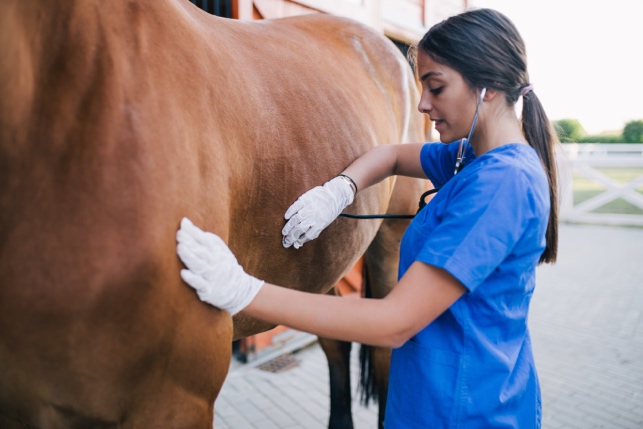
GEQ-00893
 Visit veterinary professionals site
Visit veterinary professionals site


